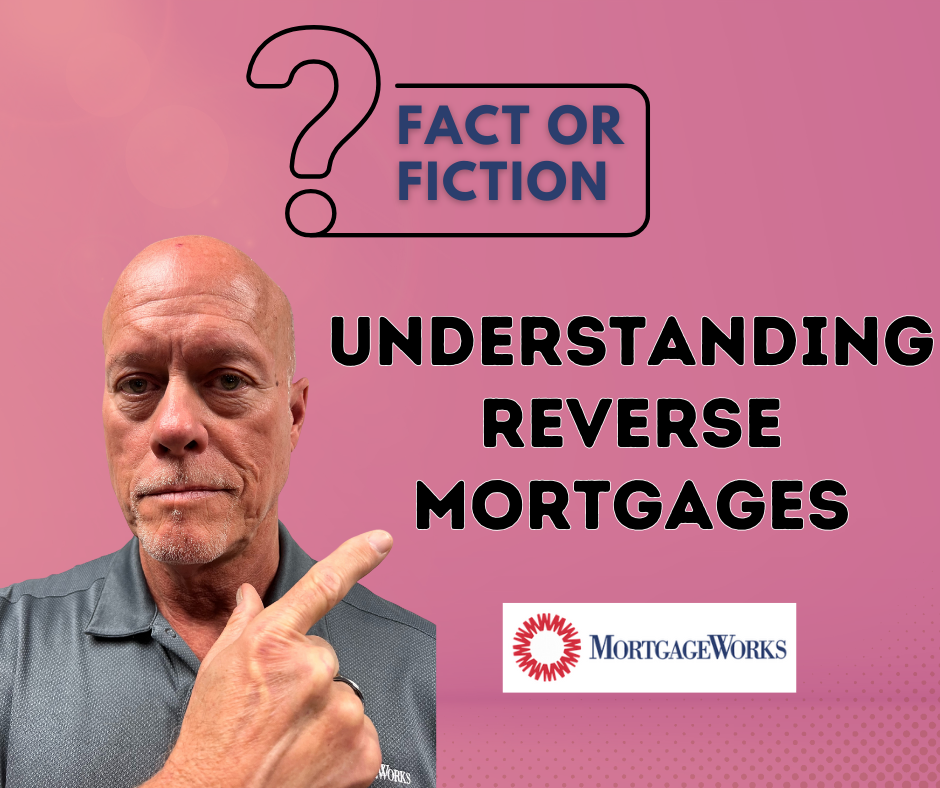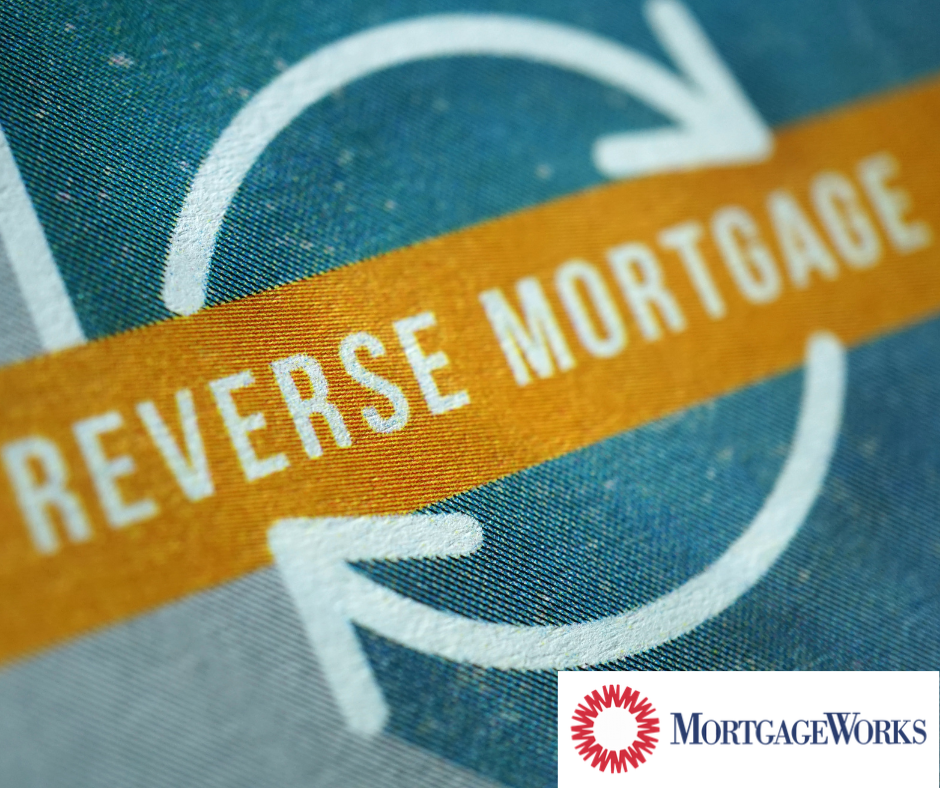 When it comes to managing rising housing costs in retirement, reverse mortgages can be a powerful tool—but they’re also widely misunderstood. At MortgageWorks, we’ve seen firsthand how misinformation can keep homeowners from making choices that could dramatically improve their quality of life. In a recent conversation with a former client, we explored this very issue, revealing key insights every homeowner should know.
When it comes to managing rising housing costs in retirement, reverse mortgages can be a powerful tool—but they’re also widely misunderstood. At MortgageWorks, we’ve seen firsthand how misinformation can keep homeowners from making choices that could dramatically improve their quality of life. In a recent conversation with a former client, we explored this very issue, revealing key insights every homeowner should know.
One of our clients reached out after noticing his monthly housing expenses were creeping up, despite having secured a 30-year fixed mortgage at a historically low 2.75% back in 2021. His principal and interest payments hadn’t changed, but other costs had. Property taxes had risen, insurance premiums had surged, and HOA dues were significantly higher. While his mortgage was stable, the total cost of homeownership had grown, and this is an increasingly common scenario for homeowners, especially retirees on fixed incomes.
Given his situation, we suggested a reverse mortgage as a potential solution. This option could eliminate his current mortgage payment entirely, offering financial relief by shifting the responsibility for repayment until the home is sold or the borrower passes away. He would still need to pay taxes, insurance, and HOA dues, but removing the mortgage payment could create substantial breathing room in his budget.
However, like many, he was skeptical. His concerns echoed common myths that prevent many retirees from considering reverse mortgages seriously. Let’s explore and debunk those concerns.
 It’s true that some reverse mortgage products, such as the federally backed Home Equity Conversion Mortgage (HECM), include fees like closing costs and mortgage insurance premiums. But claims that the costs are prohibitively high are often exaggerated or misunderstood.
It’s true that some reverse mortgage products, such as the federally backed Home Equity Conversion Mortgage (HECM), include fees like closing costs and mortgage insurance premiums. But claims that the costs are prohibitively high are often exaggerated or misunderstood.
For example, while it’s possible to be charged up to $6,000 in origination fees, this is not mandatory. At MortgageWorks, we do not charge this fee. We are compensated by the lender, not the borrower. If another lender insists on charging this fee, it’s your right to walk away—and we invite you to contact us instead.
Standard closing costs for a reverse mortgage are very similar to a traditional refinance. For a loan amount of $300,000 to $400,000, you might expect closing costs around $3,500. That’s in line with any refinance transaction and certainly not out of reach.
The biggest objection tends to be the mortgage insurance premium. On a HECM loan, this upfront fee is 2% of the principal limit—comparable to FHA first mortgage insurance at 1.75%. This insurance, however, isn’t wasted money. It provides a critical safeguard: if the value of your home ever falls below your loan balance, neither you nor your heirs are responsible for the shortfall. This makes the reverse mortgage a non-recourse loan, a major benefit that is too often overlooked.
This is perhaps the most widespread and damaging myth. Many assume that taking out a reverse mortgage means the government—or the lender—will take ownership of their home. This is false.
A reverse mortgage is simply a lien on your property, just like a traditional mortgage. You retain full title and ownership. You can live in your home as long as you like, and you have the option to make payments if you choose, but you're not required to.
Concerns about your home “going to HUD” or being taken from your heirs are also unfounded. When the borrower passes away or sells the home, the loan becomes due—just like any other mortgage. If your heirs wish to keep the property, they can pay off the reverse mortgage balance. If they choose to sell, they retain any equity remaining after the loan is paid. The home is still yours, and your family maintains full inheritance rights.
Another myth that persists is the fear of foreclosure due to inadequate home maintenance. While it is true that homeowners are expected to keep their property in reasonable condition, there are no roving inspectors ready to take your home away for missing a paint job.
The intent behind this requirement is simply to preserve the home’s value. As long as you maintain basic upkeep and meet your obligations like paying property taxes and insurance, your reverse mortgage remains in good standing. This concern is dramatically overstated and shouldn’t dissuade homeowners from exploring their options.
 When structured properly, a reverse mortgage can be a lifeline for retirees. It allows them to access their home equity without taking on additional monthly payments. It can fund home repairs, pay off debts, supplement income, or simply reduce financial stress. For those feeling pinched by rising property-related expenses, it’s a viable solution worth considering.
When structured properly, a reverse mortgage can be a lifeline for retirees. It allows them to access their home equity without taking on additional monthly payments. It can fund home repairs, pay off debts, supplement income, or simply reduce financial stress. For those feeling pinched by rising property-related expenses, it’s a viable solution worth considering.
Don’t let myths and misinformation stand between you and financial peace of mind. At MortgageWorks, we’re here to provide honest, clear, and expert guidance on your mortgage options, including reverse mortgages. We’ll walk you through the process, help you understand the costs and benefits, and ensure you’re empowered to make the best choice for your future.
Visit www.mwloan.com or call us directly at (760) 969-5020 to schedule a free consultation. Your future is worth a conversation.
Do I still own my home with a reverse mortgage?
Yes, you remain the full owner of your home. The reverse mortgage is simply a lien on the property, like any other mortgage. You maintain control and title to your home.
Will my heirs inherit debt?
No. Reverse mortgages are non-recourse loans, which means your heirs are not personally responsible for any loan balance that exceeds the home's value. If the home is worth more than the loan, your heirs keep the equity.
Are reverse mortgage fees really that high?
Fees vary, but at MortgageWorks, we do not charge the common $6,000 origination fee. Closing costs are similar to a typical refinance. The mortgage insurance premium protects you and your heirs from market downturns and is a valuable feature.
Can I be foreclosed on for poor home maintenance?
While there are standards for keeping your home in livable condition, lenders are not looking for reasons to foreclose. The goal is to protect the value of the home, and reasonable upkeep is all that’s expected.
Is a reverse mortgage right for everyone?
No, but it can be a powerful option for many retirees, especially those with equity and rising housing expenses. We recommend a personalized consultation to explore whether it's right for your situation.